

SETTING THE AGENDA
INSIDE: WHAT BUSINESS LEADERS IN THE SOUTH WANT FROM THE NEXT GOVERNMENT

The Business Magazine and James Cowper Kreston thank all the companies which contributed to this research


































LISTENING TO REGIONAL BUSINESS NEEDS
Why now is the time for Government to hear directly from business owners
Last summer, The Business Magazine and James Cowper Kreston sat down to discuss how critical it was for working groups of senior business leaders to help inform the next government on what was needed, from their point of view, to kick start the regional economy.
We are both passionate about supporting the growth and success of entrepreneurial businesses across the Thames Valley and Southern region.
With an election on the horizon, it was the right time to garner these views over a period of four months, to create an insight into the concerns, opinions and opportunities that the next government might consider.
This report has been produced after consultation and meetings with many regional business owners both large and small, and input from representative business bodies in the region. It aims to shine a light on both the current issues
 Richard Thompson Chief Executive The Business Magazine Group Ltd
Richard Thompson Chief Executive The Business Magazine Group Ltd
as they are seen, and the proposed solutions that the next government should consider.
About the study
The study consisted of primary research with business leaders both through interview and completion of online surveys and polls.
The first-stage key findings were subsequently put into two think tank group of businesses, one based in the Solent region, the other in Thames Valley, who were tasked with coming up with tangible actions that the next government could take.
The result of these two think tanks is a ten-point manifesto aimed at inspiring significant growth in both regions.
It was clear from these think tanks, chaired jointly by our Managing Editor
Stephen Emerson and James Cowper Kreston’s Joint Managing Partner Sue Staunton, that there is a passionate will among the business community to grow the country’s economy.
The mood in both rooms was largely optimistic and it was abundantly clear how much the business communities in both regions care not only about their enterprises but also the areas where they are based.
We hope both our readers and key influencers, will echo the views of this report.
This manifesto represents a unified voice supporting expansion, investment and sustainability across the region, helping to ensure that the concerns and aspirations of businesses in the region are effectively communicated directly to policymakers.
Sue Staunton Joint Managing Partner James Cowper KrestonTEN PRIORITIES FOR THE NEXT GOVERNMENT
Key research findings on what business needs from the next administration
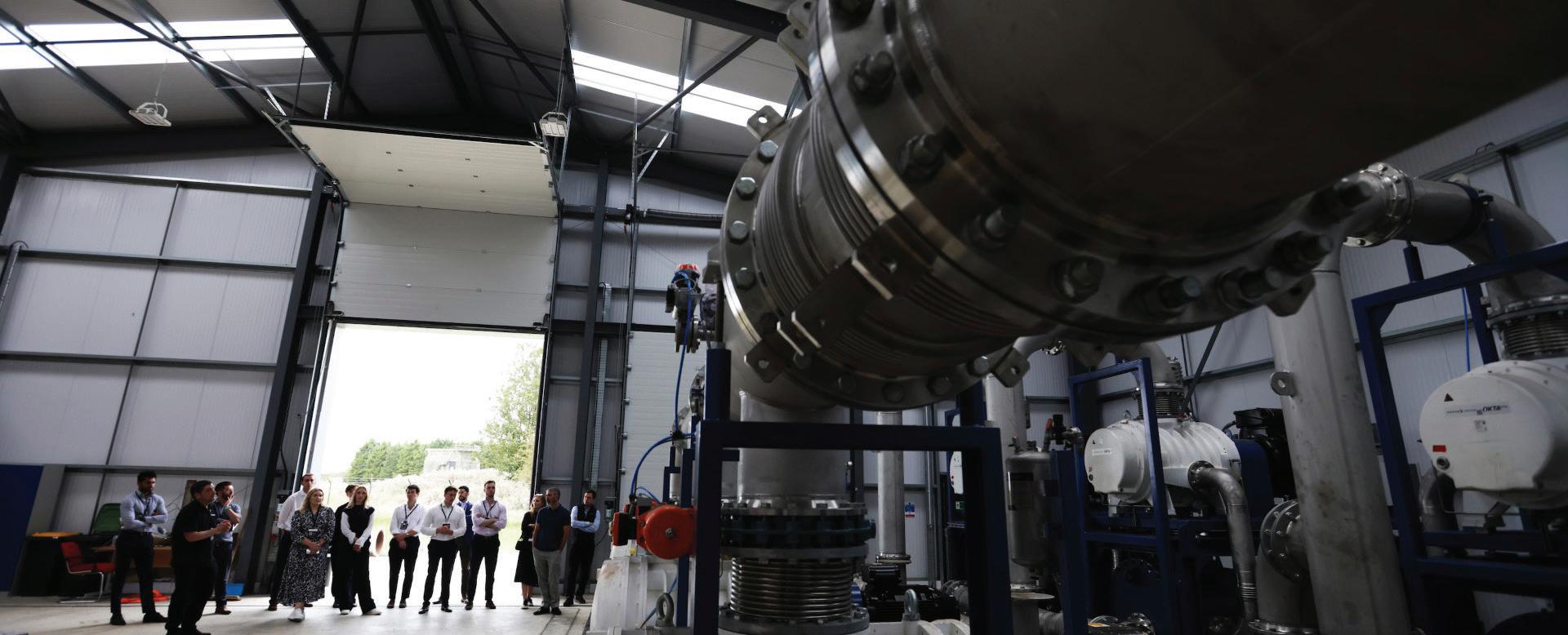
1
Westcott
A clear and concise industrial strategy
A clear and coherent industrial strategy is needed to ensure that businesses can help to focus government priorities. This strategy should be widely communicated and driven by a cross-party committee that would transcend changes in government. Businesses should have direct access and input to this committee through a formal channel of communication.
Create more government procurement opportunities for SMEs
4 Streamline the government procurement process so that the process is made simpler and accessible to SMEs without the resources of large corporations. Offer exclusive opportunities within the tender process for SME companies. Simplify and streamline access for health-tech startups in gaining access to NHS.
2
Creation of a centralised planning department
The planning system in England and Wales should be taken out of local control, for schemes with significant economic impact, and transferred to a centralised government planning department. This department would provide skilled expertise and uniformity to planning decisions.
3
Bring simplification and consistency to the tax system
Commit to a period of stability within the tax system at the start of the new government term to allow businesses to plan ahead with headline taxes such as corporation tax fixed for at least two terms. Simplify and reform R&D tax credits so that they reward companies that are diversifying their activities.
5
Prioritise digital connectivity
Make digital connectivity a key government priority so that all businesses and residents in the UK, no matter where they are, have access to high speed internet and a reliable mobile phone signal.
Create an oversight body that ensures and incentivises private telecommunications companies to make adequate provision for rural areas and that coverage black spot areas in towns and cities are attended to.

6
Create a joined-up transport network
Create an overarching public body which oversees strategy for creating a joined up transport network across the country.
The body should work with business to find out where the work travel pressure points are on road and rail networks and work in partnership with private enterprise to ease these.
Make the trade route an attractive option 9
The next government should promote the value of a non-university route into employment through a concerted marketing campaign that increases the social value of the roles and opportunities that this leads to.
While the importance to the UK economy of technology and innovation cannot be ignored, there are other areas within the economy that need to be resourced.
The education system at all levels should engage closely with business so that the skills that are needed are fed back into teaching.
7
Expand tax incentives to encourage investment in innovation
The current capital expenditure refund scheme, which rewards money spent on hardware, should be expanded to encourage spending on products which encourage technological innovation and diversification. Provide more tax incentives for investment in established businesses that are seeking to innovate/diversify rather than just for those that are earlier stage such as EIS.
8
Incentivise employment to increase the labour market
Create more tax incentives for employing apprentices and those currently not in the labour market and create a better route for more skilled migrants to enter the workplace.
The £38,700 visa threshold should be examined for occupations where there is a skills shortage. Communication should be improved about current reliefs, such as tax relief for veterans, so that employers are aware of what is available.

The education system at all levels should engage closely with business so that the skills that are needed are fed back into teaching.
Create a consistent sustainability strategy 10
A comprehensive business sustainability strategy is needed that spells out the government’s approach so that business can rally behind it. There also have to be incentives for companies that are meeting their targets and for those who are innovating and driving forward the green economy.
THE UK NEEDS TO FALL IN LOVE WITH SMES AGAIN
Business leaders feel the country and government is less supportive of innovators and entrepreneurs
We interviewed 20 business leaders and owners from across the Thames Valley and the Solent about how the next government could support them. We also carried out an online survey of 100 business owners and senior business decisionmakers across our readership area to discover their thoughts on the current administration and what they need from the next government. The findings from this online survey can be found in graphs on these pages and were discussed at two think tanks in the Solent and Thames Valley.
Participants
Neil Pizzey, Managing Director, Amazon Filters
David Ayre, Director, Ayre Chamberlain Gaunt
Bashir Parkar, Founder and Chief Executive Officer , BAP Pharma
Dominique Tillen, Founder, Brush Baby
Steven Campbell, Director, Campbell West
Melissa Magee, Company Director and Architect, Carless + Adams
Gareth Miller, Managing Director, Carswell Gould
Daniel Szor, Founder, The Cotswold Distilling Company Ltd
Ross McNally, Executive Chair, Hampshire Chamber of Commerce
Virginia Corless, Chief Executive Officer , MoA Technology
Steven Northam, Founder and CEO, Northamtec Investments
James Harcourt, Co-Founder, Novatura
John Phillipou, Managing Director of SME Lending, Paragon Bank
Nader Jaafar, Sales Manager, Paragon Skills
Kieran
Mark Thomas, Chief Executive Officer, Reaction Engines
Sean Taylor, co-founder and Global Chief Executive Officer, Redwood Technologies
Ed Drysdale, Director, TP Architects
Mark Cranstoun, Chief Executive Officer, Total Negotiation
Alex Tatham, Executive Director, Westcoast
The next government should embrace SMEs if the country is to grow.
The first stage of our research found that respondents felt many aspects of their business had become harder and that support from government and the public had declined.
How likely is your company to make a capital investment or acquisition over the next 24 months?
The outlook of companies when it came to investing in their business over the next two years was bleak. More than a quarter said they had no plans to invest in capital expenditure.
David Ayre, Director of Basingstoke-based architects, Ayre Chamberlain Gaunt said: “The SME community feels as if the UK has fallen out of love with it and those who start their own businesses.
Government red tape
The first year of a start-up’s life can be ‘make or break’ but government red tape, particularly from HMRC, was highlighted as a key growth blocker.
James Harcourt, Co-Founder of Southampton-based design and developer Novatura, said: “When we first set up payroll with HMRC it was a nightmare.
“Our main focus shouldn’t have been on tax it should have been how we can grow.”
The UK needs an industrial strategy
Does the UK Government need a refined industrial strategy?
There was unanimous backing for an industrial strategy that considers what the UK does best and then delivers on that.
Ross McNally, Executive Chair of Hampshire Chamber of Commerce, said: “A clear industrial strategy is needed so businesses can confidently invest against it and, if they are international businesses, encourage their head offices to invest in the UK.
How much of an impact can a government have on business performance?
Negativity in government and society should also be challenged, particularly around Artificial Intelligence (AI), said survey respondents, who feel that that government has an important role when it comes to improving business performance.
Alex Tatham, Executive Director of Theale-based Westcoast, said:
“People often talk about AI in terms of how they can protect themselves, and because it’s going to change a lot of things, people talk about it negatively. But that should be challenged.”
Main achievements
The completion of the Elizabeth Line which connects the Thames Valley’s major towns with central London was lauded as a major achievement. Innovate UK’s support for the Solent’s tech ecosystem was also highlighted.
Alex Tatham of Westcoast said: “The Elizabeth Line is a fantastic asset for the Thames Valley with the connections from Reading to London.”
Gareth Miller, Managing Director of Southampton marketing agency Carswell Gould, whose firm organises the tech event Venturefest, said government-funded economic bodies had made an impact in the Solent.
He said: “Organisations that are funded by the government, such as Innovate UK, are doing great work supporting innovators from all walks of life.
“The government has also funded skills bootcamps for people looking to change career.”
Participants, however, say the pandemic’s furlough support was this government’s single biggest achievement.
Mark Cranstoun, Chief Executive Officer of Henley coaching firm Total Negotiation, said: “The pandemic support was easy to access and understand, and had minimal red tape.”
“I would like to see all parties setting out their stall on how they would deliver a five-year industrial strategy to help build confidence.”
Interviewees also wanted an industrial strategy to inspire a positive vision for the country.
David Ayre of Ayre Chamberlain Gaunt said: “There has to be a feel-good factor. One of a confident UK that can punch above its weight on a global stage.”
More infrastructure investment is needed
Which infrastructure projects would best boost business sustainability goals?
More investment is needed in telecommunications infrastructure to address the UK’s connectivity issues.
Kieran Searle, Head of Sales at Portsmouth’s Prestige Telecom Group, said: “Many people still have signal issues, even in our towns and cities. The government needs to work with the networks to fix this.”
Energy supply was a big concern for Mark Thomas, Chief Executive Officer of Culham-based Reaction Engines. He said: “If you look at how much industry there is in the South East it is clear how energy limited we are.
“We’re going to have to distribute energy more broadly. I’m excited by small modular reactors, because that could be a big enabler for a more sustainable energy ecosystem.”
THE IMPORTANCE OF CLUSTERS
Has the current government done enough to help business?
Clusters play a vital role in encouraging large corporates, SMEs, start-ups, universities and colleges to collaborate on economic growth.
The Thames Valley and Solent are home to a number of powerful clusters which should be recognised by the next government as a super cluster.
Ross McNally of Hampshire Chamber of Commerce said: “The technology triangle within the Central South is as powerful as the Northern Powerhouse and as robust as the Midlands Engine.
“It goes all the way up to Thames Valley, across to Poole, Chichester and the whole of the Solent area.
“It is a fantastic super cluster of technology businesses which come together because they have technologies in common.”
The Thames Valley is the UK’s biggest economic centre outside London and is expected to see a 9.4 per cent growth in GVA from 2019 to 2025.
But those interviewed in the research felt that the region is taken for granted.
Sean Taylor, Chief Executive Officer of Bracknell’s Redwood Technologies, said: “This not just the UK’s but Europe’s equivalent of Silicon Valley. We do not value our ‘Tech Valley’ (Thames Valley) enough and don’t want to start appreciating all it brings to the region after we have allowed it to be dismantled.”
Housing costs deter those who want to stay in the area after graduation.
Gareth Miller of Carswell Gould said: “The brain power in this region is enviable if you think about the sheer volume of people going through university.
“But graduates are either going to London, where is there is a mass of jobs, or moving elsewhere where housing is more affordable.”
The impact of tax
Do you believe the current government tax incentives encourage innovation?
Corporation Tax rising from 19 per cent to 25 per cent has impacted on businesses investment plans.
Bashir Parkar, Founder of Marlow-based clinical trials supplier BAP Pharma, said: “My plea to the next government would be not to penalise growth businesses by increasing Corporation Tax further.”
The impact of rising taxes on companies who were paying back Covid loans was also highlighted.
Dominique Tillen, Owner of Alresford child toothbrush specialist Brush Baby, said: “People are battling increased tax levels while paying back Covid loans.
“We’ve had corporation tax go up. We’re still paying extraordinarily high rates of VAT and have business rates on top. Then we’ve got PAYE – employing somebody is massively expensive. If those taxes were reduced, we could employ more people.”
Tax incentives should focus on encouraging investment and helping early-stage companies to commercialise.
Steven Northam, Founder and CEO of Winchester’s Northamtec Investments, said: “With an ever-reduced dividend allowance, the reduction in entrepreneurs’ relief from £10 million to
We would appreciate some help on meeting our sustainability obligations. For a small company, preparing to become a sustainable company is quite expensive
£1 million is not screaming out “start a business” any more in the UK. We need some cracking incentives for people to put the hard work in when creating a business.”
Last April the government announced that companies could claim 100 per cent capital allowances on hardware purchased for business.
This was welcomed, but some felt that this incentive should have gone further and included software.
David Ayre of Ayre Chamberlain Gaunt said: “There should be more of a push around software as the current incentives focus on purchases of hardware.”
More support needed to help businesses become sustainable
Many SMEs felt that there was a lack of support and funding to help them to reach net zero.
Bashir Parkar of BAP Pharma said: “We would appreciate some help on meeting our sustainability and Net Zero obligations.
“For a small company, preparing to become a sustainable company is quite expensive.”
Fleet-based John Phillipou, Managing Director of SME Lending at Paragon Bank, said SMEs were concerned about assets that would be left stranded in the push to net zero.
He said: “SMEs are worried about meeting their obligations which will require them to reduce their carbon emissions by at least three per cent below 2020 levels by 2030.
“However, they are taking action as we are seeing an increase in customers who are interested in green assets.”
The skills shortage
Innovative solutions are needed to tackle the skills shortage in key areas. Suggestions included revisiting how overseas qualifications are matched against British equivalents and increasing the age that workers can draw from their pensions.
Alex Tatham of Westcoast said: “One of our post pandemic problems is being able to employ people over 50, because so many are retiring.
“I would like to push the age where you can cash in your pension pot.”
There was a willingness amongst respondents to offer their
services and experience to schools.
Steven Campbell, Director of Bracknell-based Campbell West, said: “I’d happily attend school career days to promote the building services sector because I think it’s a great career for any young lad or girl.”
The minimum salary for a Skilled Worker Visa will increase to £33,000 this month (March) with the minimum income requirement for sponsoring a partner or spouse visa increasing to £38,700 by early 2025.
The Shortage Occupation List (SOL) will be replaced with a new Immigration Salary List, with stricter salary requirements for specific occupations.
James Harcourt, Co-Founder of Novatura, called for a better route for skilled migrants.
He said: “By increasing the salary barrier to £38,700 a year, they have created a barrier to innovation in the south.
“The University of Southampton has more than 6,500 international students and I think this could hit Southampton as a university city, as well as the broader Solent region.
“We will be losing a highly skilled workforce. The next administration support innovation and graduates.”
Influencing policy
Do you feel you can influence government on how it can support business?
Business leaders felt shut out of many government decisionmaking processes and there had to be mechanisms put in place that allowed businesses to directly influence policy.
Sean Taylor, of Redwood Technologies, said: “We need the CBI back to its full power, to ensure the voice of business is better heard by government. The appalling actions of a small number of its colleagues have caused it great damage. It seems to be recovering and the hiring of Rupert Soames, who I dealt with when he was CEO at Serco, it a great boost to the organisation.”
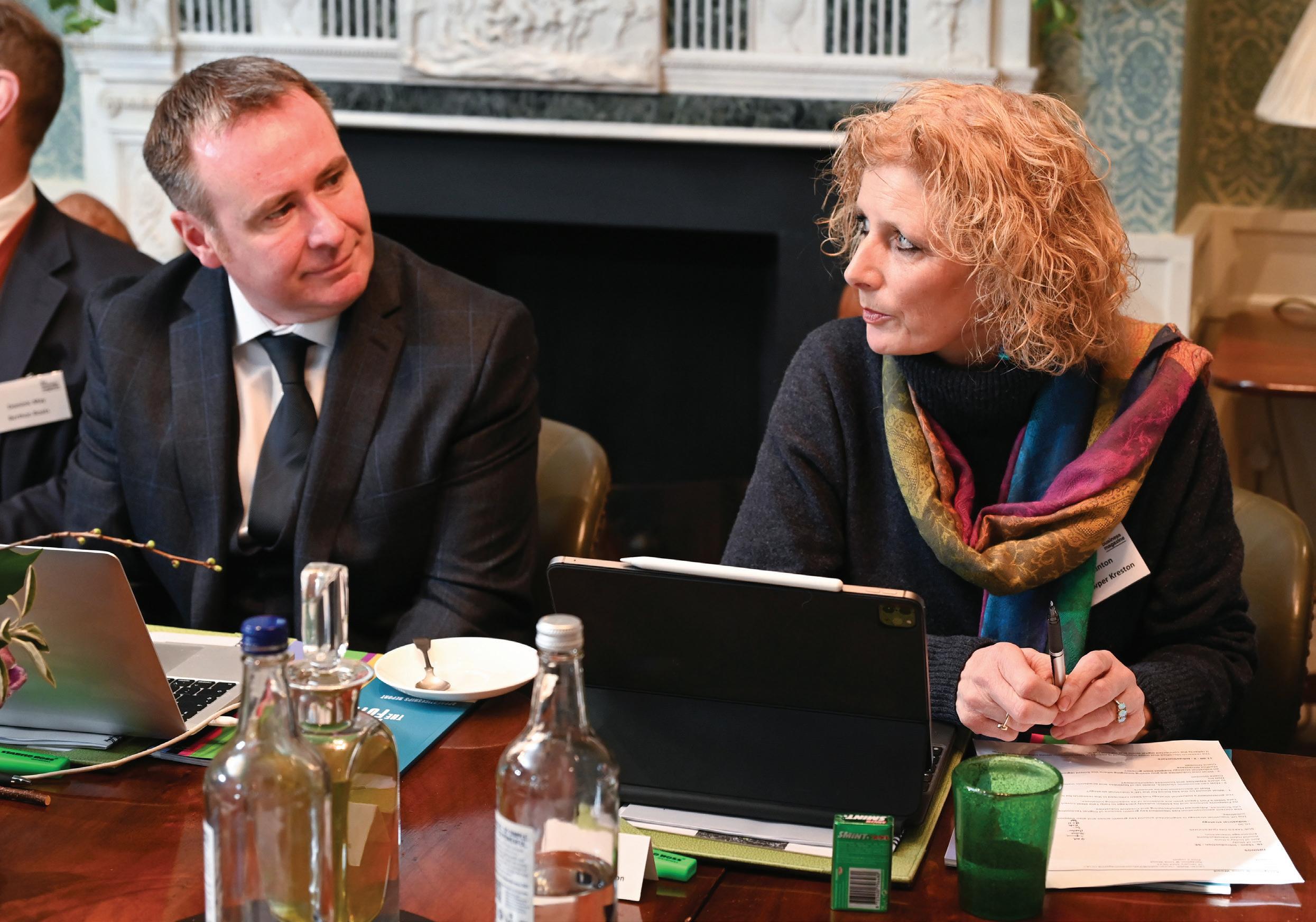
CLARION CALL FOR STABILITY AND DIRECTION
Respondents are clear that a period of stability is necessary for growth
By Stephen Emerson and Sue StauntonIf there was a common theme which ran through our survey, all our interviews and Think Tanks, then it was the need for stability for business.
There was a yearning for a period of calm following a turbulent economic decade which has seen frequent changes of Prime Minister; interest rates at levels not seen for many years, the impact of Covid, Britain’s exit from the European Union and increased global instability with the breakout of war in Ukraine and the current issues in Gaza.
These seismic changes have also been accompanied by an undercurrent of domestic political indecisiveness
characterised by regular changes to the tax system and the lack of a cohesive wellcommunicated industrial strategy.
It was not surprising that these two points were the focus of scrutiny at both the Thames Valley and Solent Think Tanks.
Chancellor Jeremy Hunt, since taking office in 2022, has opted for a more targeted sectorial approach rather than an overarching industrial strategy.
This approach was criticised for failing to provide a framework within which businesses could align their strategic objectives.
Those taking part in the study also called for an industrial strategy with a backbone that could not be changed at the whim of a new administration.
If we are to follow the Americans and become more entrepreneurial as a nation, both Think Tanks argued, then we need to closely look at what is going on in our schools and universities
It was the changes to Corporation Tax from 19 to 25 per cent that attracted the greatest criticism from the survey and Think Tank respondents.
Their unanimous view was that this increase had put the brakes on growth as profits were being diverted towards government rather than being reinvested back into business.
Those taking part in the study also called for an industrial strategy with a backbone that could not be changed at the whim of a new administration.
The mechanism that would deliver this stability?
A permanent powerful cross-party committee, whose role is enshrined in statute, that would control the direction of the strategy and ensure that it would survive future changes in government.
It was felt there was a need for clear direction and incentives when it came to sustainability, particularly from the property and construction sector.
Many respondents agreed that the construction industry is vital to sparking the country’s economic growth engine into a mode that also made sustainability a reality rather than an ideal.
Those who took part from the property and construction industries, however, pointed out that the industry had to be guided.
Melissa Magee of Carless + Adams notably said that the industry was “on its knees” and needed to be supported and incentivised if it was to recover and become the country’s growth engine.
The Business Magazine holds property roundtable and events throughout the year, and it doesn’t take long before frustration over the current planning system bubbles to the top of the debate.
For the two Think Tank events, it was no different, with frustration over the length of time of what can sometimes be an arbitrary and inconsistent process can take.
The need for stability again arose when planning was discussed with the need for a unitary body to handle higher level decisions called for.
David Ayre, of ACJ Architects, made the case for a positive vision for the country that would back up a robust industrial strategy.
This vision, he argued, hadn’t been felt in the country since Tony Blair swept to power under the Cool Brittania banner.
There is merit in this positive approach when it comes to lifting us out of the negativity which is fuelled by a constant stream of downbeat headlines about the country and the economy.
Two main players of the Thames Valley tech industry, Alex Tatham of Westcoast and Sean Taylor of Redwood Technologies also alluded to the power of positivity in their responses.
Sean said Americans take real pride in the achievements of their cities and the entrepreneurial drive of the country’s citizens - something which is appears to be lacking here in the UK.
Alex said politicians and businesses should see the opportunity and not the threat in Artificial Intelligence, adding that many politicians and business owners viewed it through a negative prism when in fact there was a much bigger prize at play.
If we are to follow the Americans and become more entrepreneurial as a nation, both Think Tanks argued, then we need to closely look at what is going on in our schools and universities.
There is an urgent need to champion the apprenticeship route at schools rather than
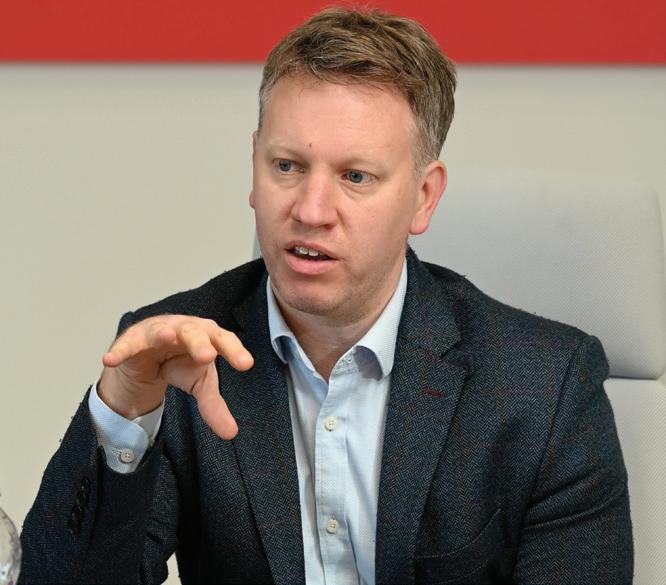
directing all children with academic promise towards a university route where fees cost up to £11,100 a year.
This is a necessity if the country is to address chronic skills shortages across the economy - from hospitality to construction - however the onus should not rest on schools and parents should also be shown that there is more than one career trajectory for their children.
The fact that 40 time-pressured leaders of some of the country’s biggest companies took time out of their schedule to contribute to this research shows how important improving economic growth is to the business community.
The Small Business Council, which launched this month, will bring together SME leaders from across the country to meet with the Department of Business & Trade.
Time will tell, however, if this proves to be another talking shop or is a body with real impact.
The ten-point manifesto provides genuine insights that could be acted upon by the next administration whatever its political complexion.
It will be presented to the policy units of the major political parties and to incumbent MPs and challenger candidates across the Thames Valley and Southern Region.
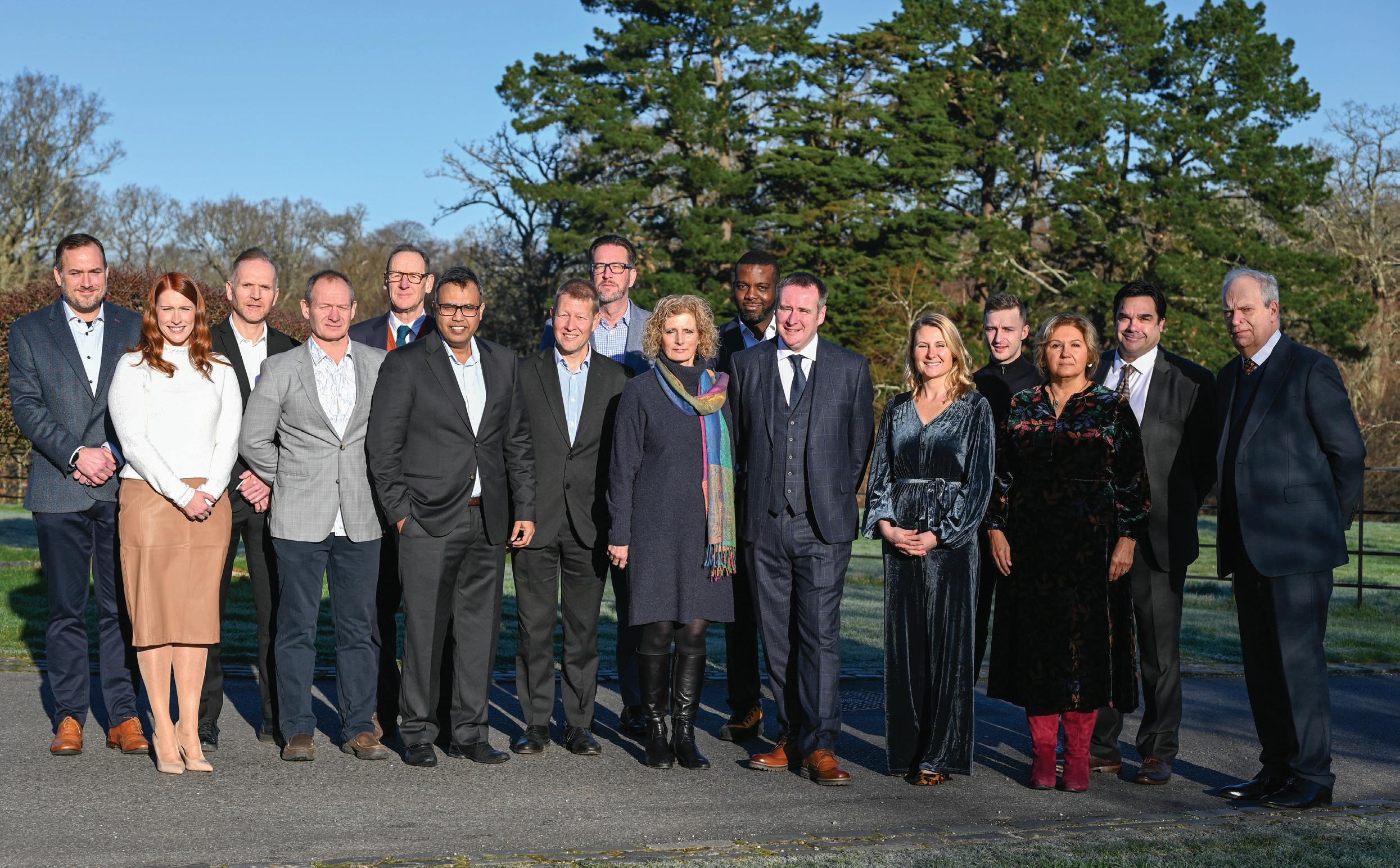
INDUSTRIAL STRATEGY KEY TO DRIVING ECONOMIC GROWTH
The next government should deliver a clear economic roadmap backed by infrastructure improvements and tax incentives
By Stephen Emerson, Managing EditorParticipants
Don Iro, Group Managing Director, 5 Villages Group
Neil Boxer, Group Managing Director, Airsys
Dominic May, Owner, Berthon Boats Co Ltd
Kath Shimmin, Chair, Blake Morgan LLP
Madhur Srivastava, CEO, DocHQ
Peter Taylor, President, Hampshire Chamber of Commerce
Alex Nicholson, Partner, James Cowper Kreston

Co-host
Stephen Emerson, Managing Editor, The Business Magazine
Alex Peal, Joint Managing Partner James Cowper Kreston
Paul Ravnbo-West, Marketing Director, Kelda Showers
Suzanne Wright, Strategy & Marketing Director, NMSB
Jamie Noble, Founder, Noble Company Holdings
John Holden, Investor, Scorpion Ribs
Claire Goodall, Equality, Diversity and Inclusion Consultant at STEM Returners

Co-host
Sue Staunton
Joint Managing Partner at James Cowper Kreston
If there is to be substantial growth in the UK economy, it must be driven by a strong industrial strategy backed by improved infrastructure and an incentive-driven tax system.
This was the consensus of the Solent Think Tank chaired by James Cowper Kreston and The Business Magazine which debated findings carried out in the first stage of the Setting the Agenda project.
The event, held at the Lime Wood Hotel in Lyndhurst, heard from business leaders from a range of industries from shipbuilding to healthtech.
Industrial strategy
The current UK industrial strategy approach was criticised for failing to provide a framework with which businesses could align their strategic objectives.
The Growth Plan 2022 was announced by the short-lived Liz Truss premiership which replaced Theresa May’s industrial strategy, announced in 2017, and focused on tax cuts and supply side reforms including planning and productivity improvements.
Chancellor Jeremy Hunt, since taking office in 2022, has opted for a more targeted sector approach rather than an over-arching industrial strategy.
The five sectors pinpointed by the Sunak government are digital technology, green industries, life sciences, advanced manufacturing and creative industries.
Peter Taylor, President of Hampshire Chamber of Commerce, spoke of the need to have an industrial strategy which would transfer across governments.


“The UK economy is heavily dependent on the service sectors. If we are going to stand alone then we have to be making things and enabling businesses to have the confidence to invest, manufacture and develop products that we can sell and export.
“Part of the problem is that government, local and national, has limited bandwidth , a limitation which is amplified by it is judged by the electorate that put it in power.
“The challenge is developing a strategic plan that will stand the test of time and that all sides of the political divide can agree.”
This need for consistency was echoed across the table, who agreed that a permanent cross-party body, which would transcend governments, should be charged with implementing a new industrial strategy.
Kath Shimmin, Chair at legal firm Blake Morgan LLP, said the need for a framework was vital.
“Government needs to provide a framework within which business can plan, she said.
“We see constant changing of plans when it comes to HS2 and sustainability.
“How are businesses supposed to plan their own strategies if they don’t have a consistent and clear framework from the government?”
The challenges of operating in a global market without a robust industrial strategy were highlighted by Neil Boxer, Group Managing Director of communications specialist Airsys who said that the United States was a more fertile ground for technology businesses.

“What we need is a very clear industrial strategy for the nation, he said.
“We are in a leader in gaming, film production and software but the structure isn’t in place to take the advances that are happening here to a global market.
“If you develop something amazing in the UK, the chances are that if someone develops exactly the same technology in the United States then, due to the funding and access to skills, the US-owned business will be much more successful than its UK counterpart.”
However, some notes of caution were sounded about a wider industrial strategy with Dominic May, Owner of Berthon Boat Co Ltd, arguing that it would lead to an increase in red tape.
He said: “I think the only industrial strategy we should have is one where government lets business run itself and focuses on running the country.
“All an industrial strategy does is pick winners or add regulation. It is not about letting businesses innovate and create jobs and growth.”


However, a balanced approach, in which government is more an enabler than a regulator was highlighted by Don Iro, Group Managing Director of 5 Villages Group, He highlighted the UK’s growing AI industry as an example.
He said: “The government should be the catalyst, not the regulator, and coming in to fix those things that are impeding our business.
“That’s the fine balance we’ve got to find. We’re not being regulated or told what to do, but actually being enabled. I think that’s the fair balance that I would like to see.”
Improving the infrastructure
The Solent has seen major investment in infrastructure in recent years. Last year the extension of Southampton Airport’s runway was completed, while a 10-year project aimed at increasing broadband connectivity has improved access for 115,000 homes and businesses.
Kath Shimmin of Blake Morgan called for travel to work routes to be prioritised and for control to be based at a local level.
She said: “If you don’t drive, getting from Portsmouth to Southampton is a complete pain and if we are trying to build the Central South as a hub, it needs to have a stronger public transport infrastructure.
There are lots of small companies with great innovation, but the government has to step up and support us by removing red tape and barriers
“It’s got to be a different level. We pretend that we lead the world in that technology. It’s not the case. It feels like we are still trying to maintain our telephony and we are not innovating.”
Improving skills
Having an on point industrial strategy and infrastructure to back it up means little if there are not the people there to drive the country’s growth industries forward.
“We have to look very hard at what travel to work zones look like.
“One of the biggest things that I would like to see is government giving local hubs responsibility and control over what that travel to work infrastructure looks like.”
With 44 per cent of the UK workforce now working from home for all or part of their working week, Airsys Group Managing Director Neil Boxer called for the next administration to put improved communications at the top of its infrastructure agenda.
He said: “More people are now working from home therefore the government needs to make sure that the broadband infrastructure is properly available.
Jamie Noble, Founder of Noble Company Holdings, which provides workers primarily to the off-shore industry, said that action had to be taken to tackle the skills crisis in the construction industry with fewer younger workers choosing to enter the sector.
He said: “The government needs to go back to the school system.
“There needs to be more of a focus on bricks and mortar and construction as this is the backbone of the country. None of this is pushed in the education system.
“A new generation involved in the trades has to come through. How many blacksmiths or stone masons do you know?
“There are less people coming in to trades like these so finding people has become harder and harder.”
Don Iro said that any future skills strategy
should consider the impact of Artificial Intelligence on the workforce and what roles will exist in the future.
He said: “We need to consider the longterm impact that Artificial Intelligence is going to have and how it will impact on all jobs going forward.
“We need to ask where these industries are going to be in 20 years’ time and what skills they will need.
“There is a massive push on lifelong learning and business needs to have a key role in shaping this strategy.
“Businesses at the cutting edge of this can identify where the gaps are and where are the areas that will make us unique and should have a method of being feeding back into this strategy.”
Government procurement policies put SMEs at disadvantage
There was frustration around the government procurement system, with large corporates seen to have a better chance of landing lucrative contracts than their SME competitors.
The panel heard how the procurement process was often difficult for smaller firms who were often up against larger and beter resourced competitors skilled at winning tenders.
Madhur Srivastava, CEO of healthtech company DocHQ, said barriers for startups and SMEs across all government departments was putting the UK at a disadvantage.
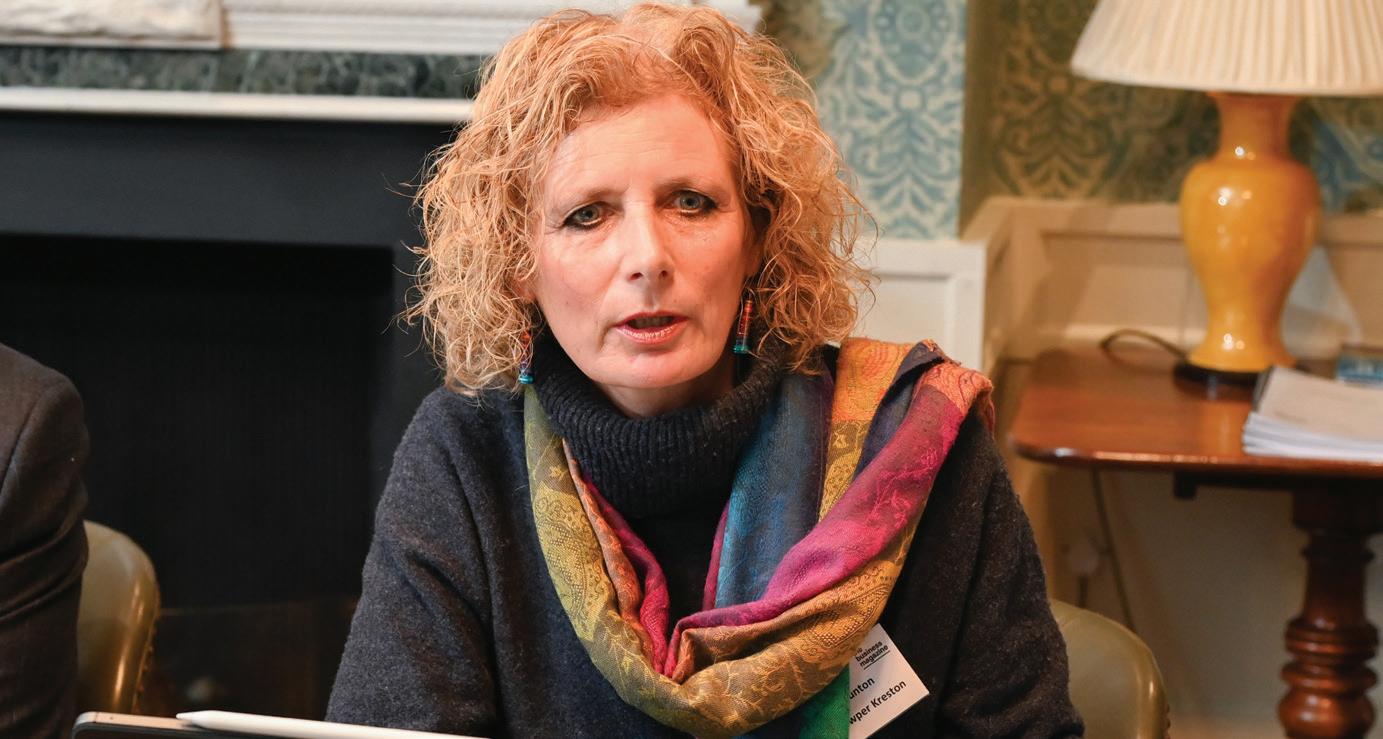
He said: “The regulation around Artificial Intelligence is all being driven by the large corporates.
“They are driving regulations that prevent start-ups from entering this field.
“I had to spend over £2 million of my own money just to be ready to gain access to the NHS.
“In the US, it is much easier to work within healthcare. In the UK, you have to wait at least two years to generate clinical data, run trials and get regulatory approvals.
“A large corporate can enter the scene with the same idea and more financial resources during that time, leaving you at a disadvantage.”
Paul Ravnbo-West, Marketing Director of Kelda Showers, which specialises in energy efficient devices, said regulation was holding back innovative start-ups.
“Regulation and bureaucracy are hindering British innovation, he said.
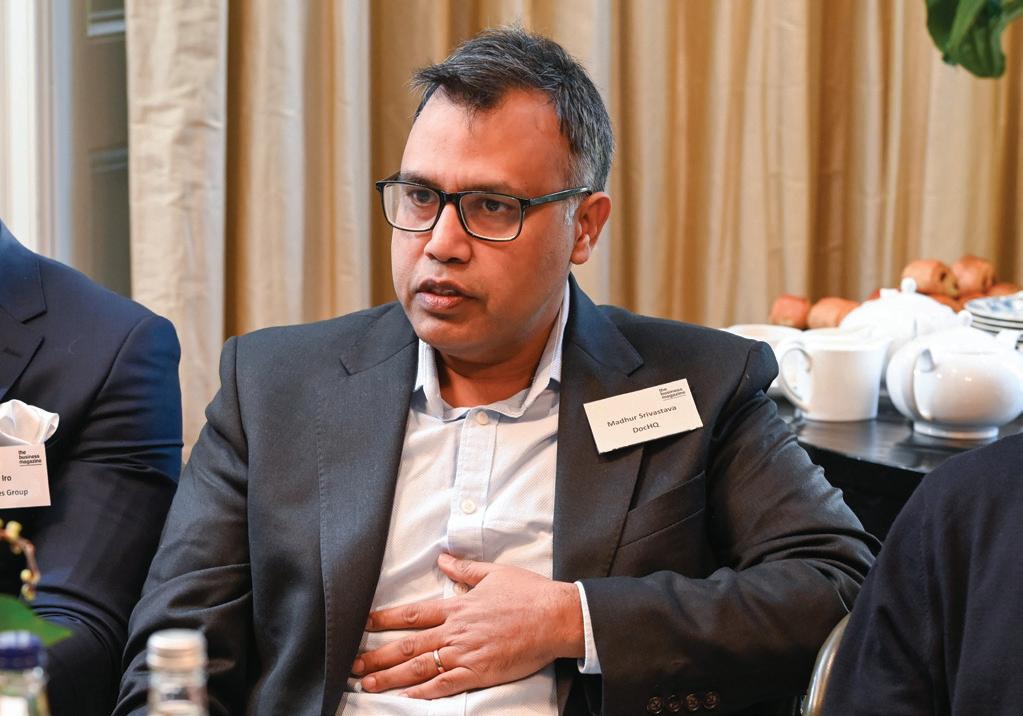
“This is making it extremely difficult for start-ups to penetrate large markets, such as the housebuilding sector, with muchneeded energy-efficient products.
“We have technology that can significantly reduce operational carbon emissions, by drastically reducing water and energy associated with hot water in showering and, at the same time lower utility bills, but we are stuck in a long and costly battle to get product compliance.
“There has to be greater collaboration in government to enable smaller companies to fast-track and demonstrate their technology benefits so we can bring products to market quicker.
“There are lots of small companies with great innovation, but the government has to step up and support us by removing red tape and barriers.
“This needs to be done urgently so that we can help fight climate change and deliver the Government’s net zero target by 2050.”
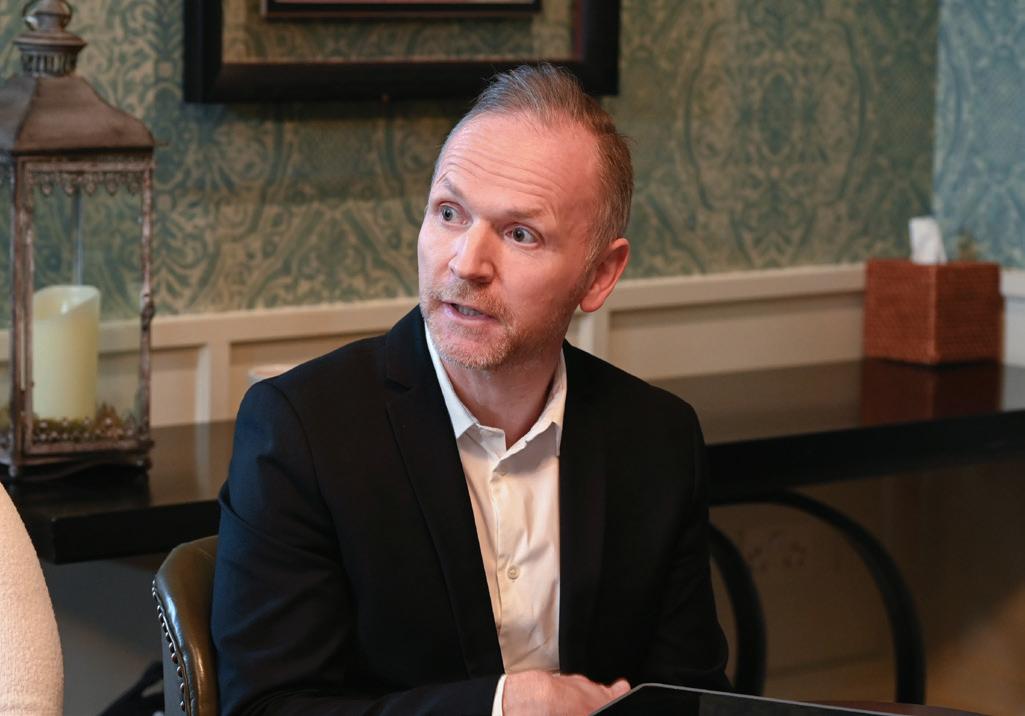

Radical planning reform needed
Both Conservative and Labour leaders have pledged to streamline the planning system.
However, participants felt that radical reform was needed and argued for the creation of a central planning body to encourage economic growth.
Suzanne Wright, Strategy and Marketing Director at building materials supplier, NMSB, said:
“The whole planning system needs to be overhauled but it needs to be done by liaising with businesses and understanding what the pain points are.
“I think the minerals industry is often one that is forgotten about. Let’s not forget that without quarrying there would be no materials for building the houses and infrastructure that we need.
“There is also no consistency across council areas and a lack of expertise.”
Britain’s tax system is too cumbersome
Tax is one of the main levers that a government can change to affect change in the economy.
The panel felt that the current system was
too cumbersome and that simplification of both the business and employee tax systems was needed.
Blake Morgan Chair Kath Shimmin said there were too many taxes that companies had to navigate and called for the system to be simplified.
“The tax system is clearly broken with too many different taxes, she said.
“A simpler tax would make it much easier for everybody.”
Don Iro of 5 Villages Group backed the call for simplification and suggested a one tax solution.
He said: “From a business standpoint, there should be the one tax for business or if you are not in business, you’re an employee, there should be this one tax that’s being paid.
“You know that this contribution will cover the NHS and all public services which are provided to citizens”
There was agreement that a period of stability was needed in the tax system following a series of changes which have seen corporation tax increase and research and development tax breaks become more complicated.
Alex Nicholson, Partner at James Cowper Kreston said: “I think businesses very much need stability in the tax environment
to know how to plan and to adapt to it and I think this constant change is very unhelpful.
“The major mistake that the government made recently was increasing the corporation tax rate.
“To compete internationally as a country, we must attract businesses and innovators here.
“When we had a 19 per cent main rate of corporation tax, that gave out the right kind of message.”
Neil Boxer of Airsys added that any reform to the R&D tax credits should reward companies that are diversifying their core business.
“We are massively growing and focusing on a new sector of software, he said.
“If that part of the business could get some tax breaks, then we would be able to employ more people.
“That’s a massive benefit for everyone, for the economy, but also my business downstream.
“I am trying to maintain one part of the business and grow another part but there aren’t enough schemes to help with the latter.”
Alex Peal, Joint Managing Partner at James Cowper Kreston, echoed the need for measures to be taken in the tax system to make it easier to commercialise new technological breakthroughs.
He said: “We are good as a country in

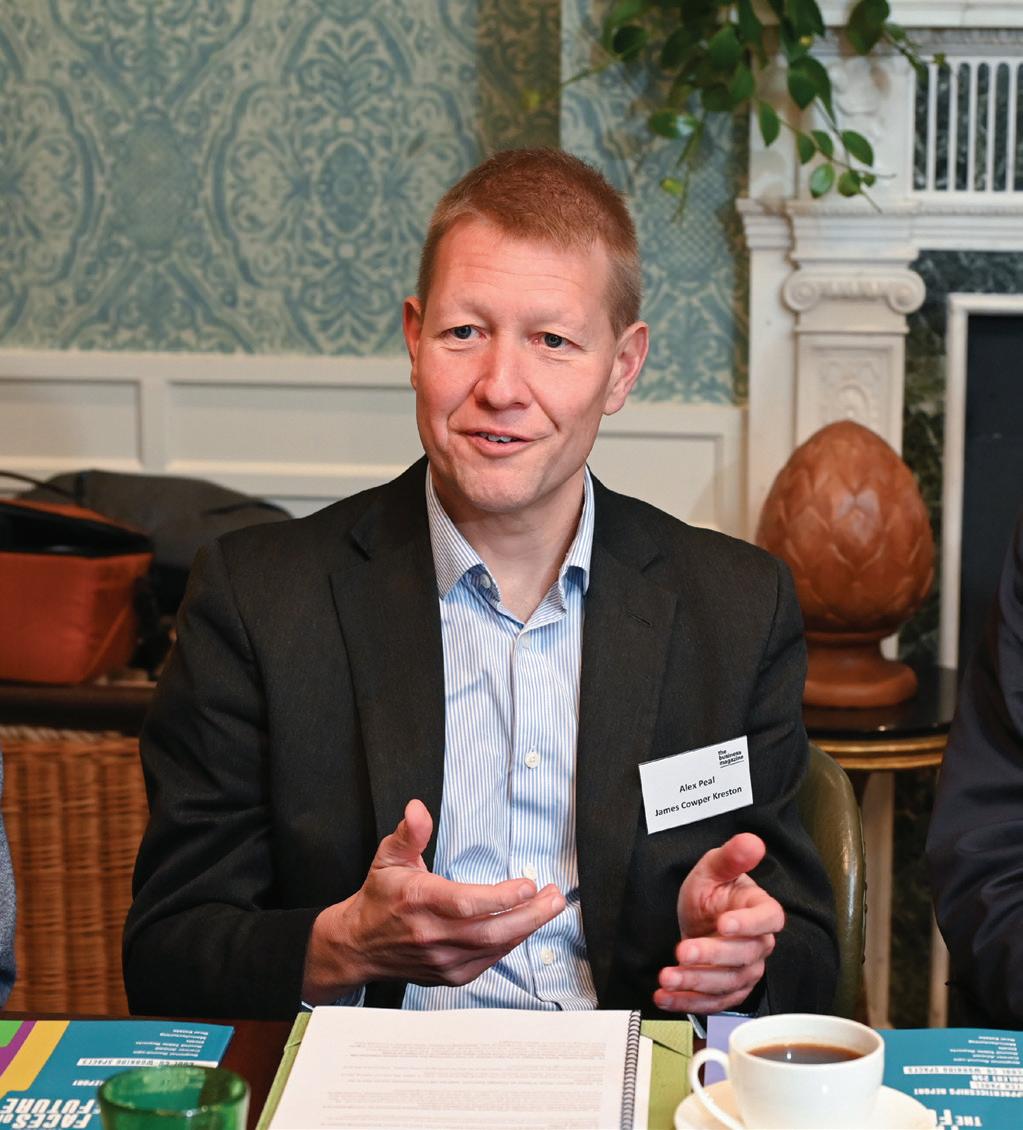
creating innovative technologies however there are barriers to commercialising it.
“Everything is easier overseas, and it’s how we break down those barriers for SMEs to allow them to actually grow and get bigger and bigger in this country.”
Claire Goodall, Equality, Diversity and Inclusion Consultant at STEM Returners, said the complexity of the tax system meant that some employers were missing out on tax relief that they did not know existed.
Employees can receive relief on National Insurance contributions for employing veterans in their first year of civilian employment after leaving the armed forces.
“I think that’s a wonderful scheme that is probably not widely recognised, or there’s not a lot of clarity around it, she said.
“We need to be working really hard to help veterans in the UK, especially at those older age brackets into work.”
Both Labour and Conservatives have talked about supporting key sectors when it comes to improving Britain’s exports with the Conservative government planning tax incentives to attract foreign investment.
Jamie Noble of Noble Company Holdings said one of the UK’s main exports is its people and the tax system should look favorably on companies being forced to pay tax for workers sent overseas both

here in the UK and in the country they have been dispatched to.
He said: “If you do work internationally, you get taxed over in the country you are working in and also taxed in the UK.
“This is a British company. I’m operating in Britain. I’m facilitating in other countries.
“Why am I not getting cash benefit from the country I’m delivering money to?
“If I’m bringing more in, why should I be taxed more?”
Leveling up
The panel agreed that lessons should be learned from Boris Johnson’s leveling up policy which aimed to reduce regional economic disparities in the UK through investment in infrastructure, urban
regeneration, skills and freeports.
Peter Taylor of Hampshire Chamber of Commerce said the economic significance and potential of the Central South region to drive the UK economy should not be underestimated and called for greater localised political control.
“I think allowing and encouraging regions to run their own affairs in important, he said.
“In this part of the country, we are in a very fortunate place. We’ve got an international asset in Southampton Port, we’ve got a key national asset in the home of the Royal Navy in Portsmouth, a lot of talent across the universities.
“As a region, we must develop our own narrative both on the national and global stage, being encouraged to do so.”
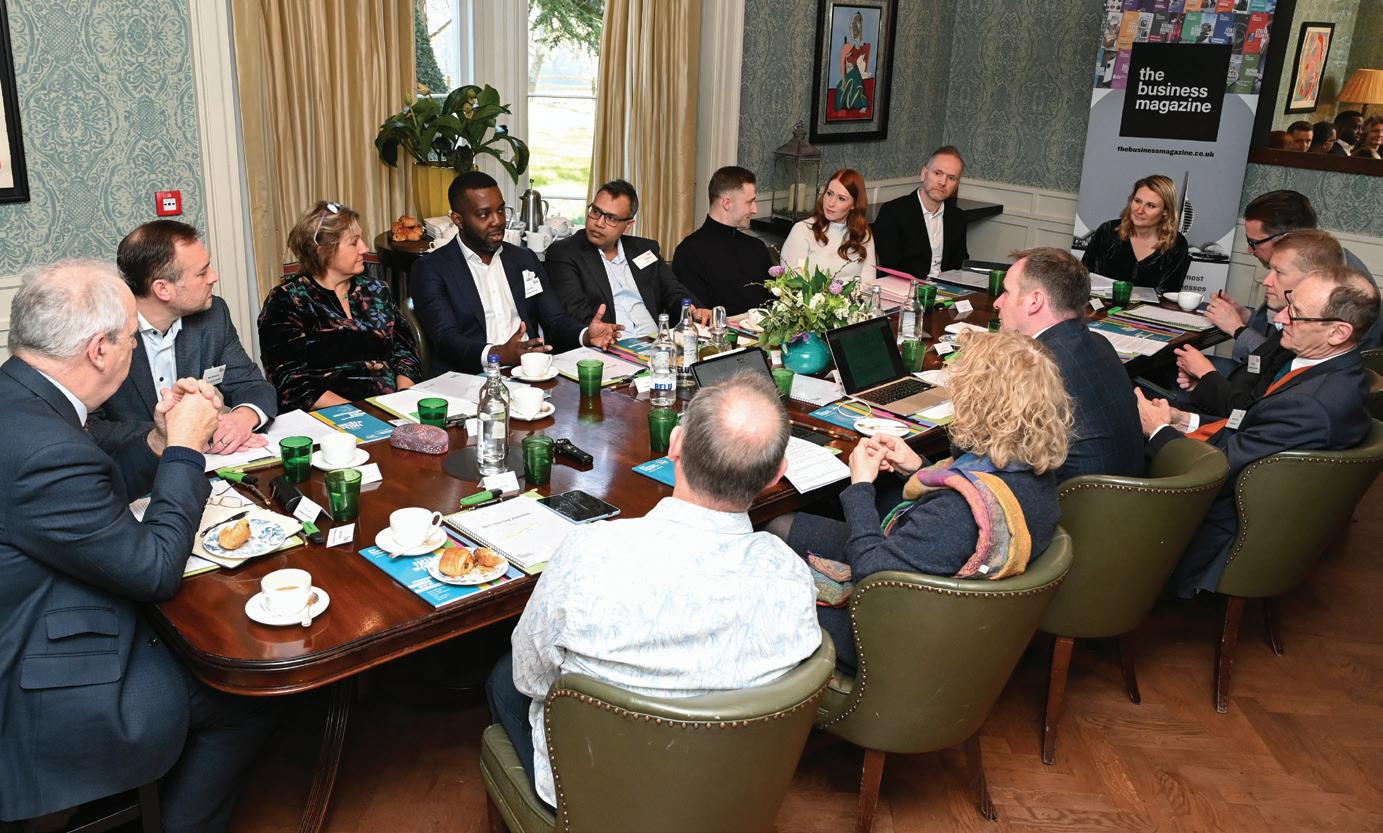
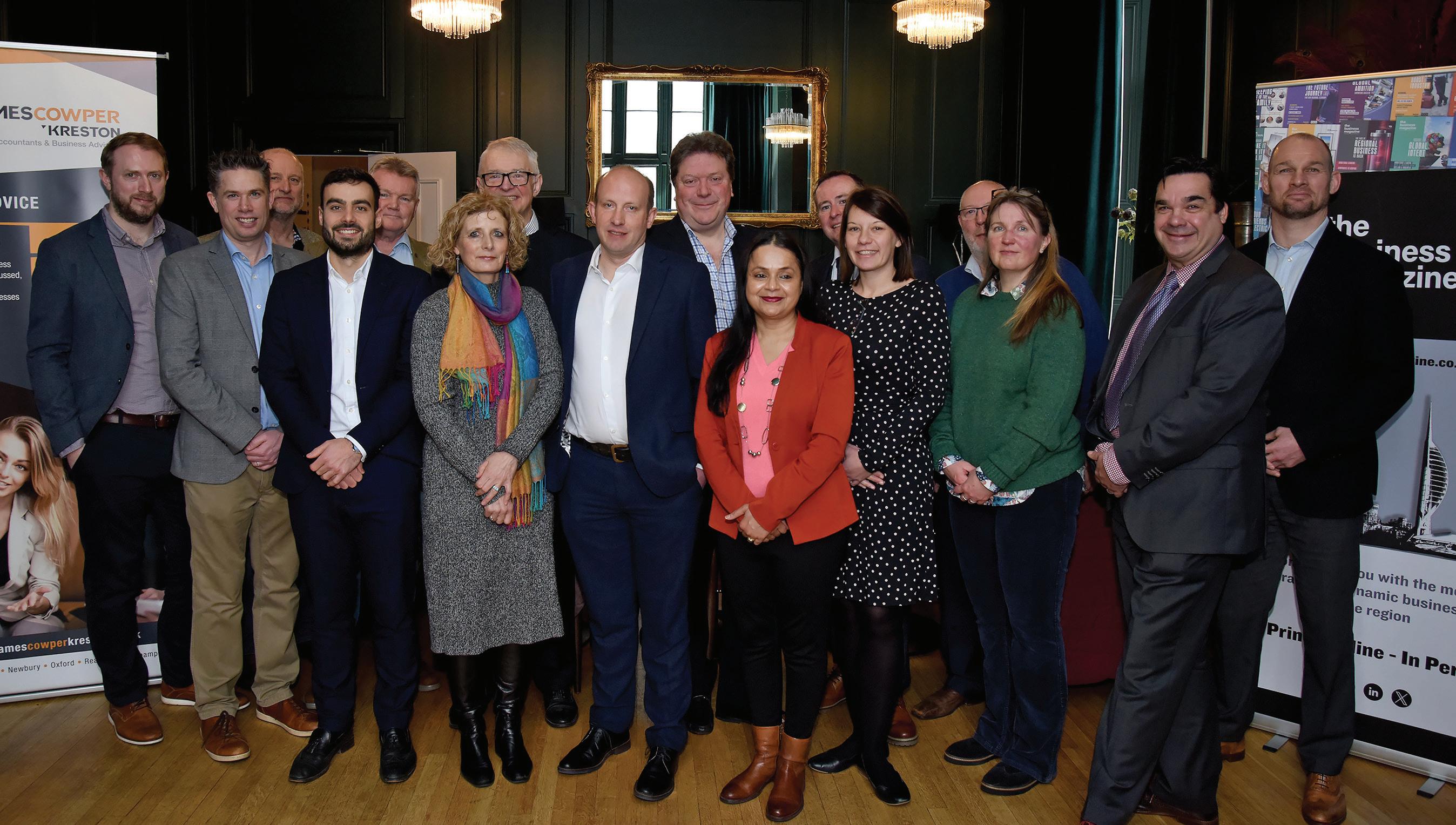
ECONOMIC GROWTH WILL BEST BE DRIVEN BY RESURGENT CONSTRUCTION SECTOR
Industry could accelerate green economy drive, but support and guidance are needed
By Stephen Emerson, Managing EditorParticipants
Neil Pizzey, Managing Director at Amazon Filters
Robin Hay, Director at Bennett Hay Limited
Melissa Magee, Managing Director at Carless + Adams
Jonny Denton, Group Sales and Land Manager at Darcliffe Homes
Jurek Sikorski, Director of Henley Enterprise Lab at Henley Business School
Cameron Smith, Business Development & Relationship Manager at Herrington Carmichael
Alan Poole, Partner at James Cowper Kreston

Co-host
Sue Staunton
Joint Managing Partner at James Cowper Kreston
Phil Snell, Business Tax Partner at James Cowper Kreston
Dr. Shane Hanson, Head of Insight and Innovation at Panasonic Europe
Ian Parmenter, Owner at Parmenter Forge
Paul Britton, Chief Executive at the Thames Valley Chamber of Commerce
Chris Sykes, Chairman and Group CEO at Volume
Alex Tatham, Executive Director at Westcoast

Co-host
Stephen Emerson, Managing Editor, The Business Magazine
The construction industry can be the engine of the UK’s net zero economy but a ‘flag in the sand’ is needed to rally the sector towards growth.
This was a key point made at the second Setting the Agenda Think Tank, held in the Thames Valley, and chaired jointly by James Cowper Kreston and The Business Magazine which debated the key research findings carried out in the first stage of the project.
The event, hosted at Easthampstead Park Hotel, Wokingham, sought the opinions of a broad spectrum of the region’s business community from large multinationals to SMEs and artisanal craftsmen.
The panel agreed that the construction industry is vital to sparking the country’s economic growth engine into a mode that also made sustainability a reality rather than an ideal.
Leading construction figures in the region, however, pointed out that the industry had to be guided, supported and incentivised.

Melissa Magee,

Jonny Denton, Group Sales and Land Manager at Reading-based developer Darcliffe Homes, backed the call for a clear sustainability pathway for the sector. “As an industry, we are not clear about what needs to happen, he said.
“At the moment, it is unclear whether EV charging is the answer or whether air source heat pumps are the answer. Are we to get hydrogen boilers?
“The Construction sector at the moment is navigating through the unknown with plenty of questions whether the relevant trades have the ability/ capacity to deliver these things on a massive scale because the labour, grid supply and equipment is not there to make it happen currently. Never mind whether the cost of these ‘solutions’ actually make sites unviable “
THINK TANKTHAMES VALLEY
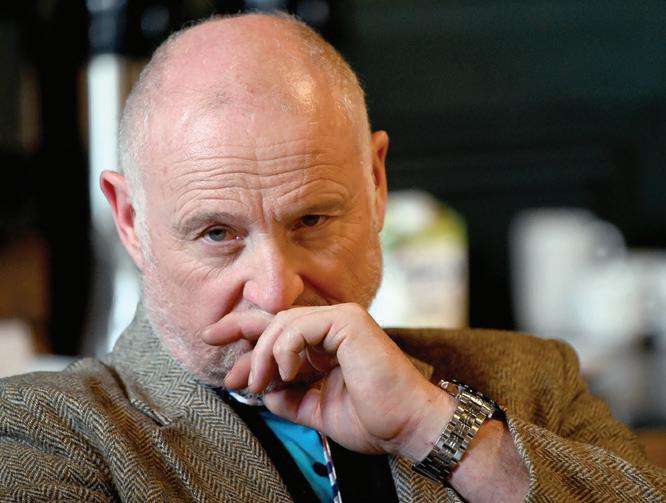
Ian Parmenter, a blacksmith and owner at Parmenter Forge, relies on cooked coal in his manufacturing process which he now has to source from overseas.
He said: “I can’t get coal from the UK, but I can get it from South America. So it’s being dug out of the ground in South America, put on a railroad, sent to a ship, unloaded in bulk, bagged and sold to me for 50p more.”
Boost sustainable procurement
The government’s procurement system was put under the microscope, and it was argued that contracts could be used to incentivise sustainable change.
and
Slough-based architects Carless + Adams, underlined the sector’s ability to drive growth.
She said: “The construction industry is almost on its knees in many aspects, yet it’s the mechanism to get the economy going again.
“There are aspirations for net zero development and for upgrading existing stock but there’s no methodology there to guide us and limited funding streams to support it.
“There needs to be a flag placed in the sand by the next government that everyone can rally around and say this is how we are going to do it, but which also doesn’t ignore our current position.
Cameron Smith of Herrington Carmichael agreed: “The banking sector, particularly the larger banks, have incentives in place in terms of reduced margins or fees for facilities where a ‘sustainable’ angle can be determined. However, with the increase in interest rates this burden is still being felt by the company who is simply trying to do the right thing. The government could definitely be doing more to incentivise these behaviours.”
There is a raw materials shortage
A warning shot was also fired about the UK’s ability to supply its industrial engine with raw materials following Tata Steel’s decision to shut its blast furnaces at Port Talbot.
The Welsh steel plant is moving to electric arc furnaces that will be powered from the national grid and will melt down scrap steel. The closure, which will result in around 2,800 job losses, leaves the UK as the only major economy without the ability to make primary steel from iron ore and coal.
Alex Tatham, Executive Director at Thealebased tech reseller Westcoast, said: “The French government require you, if you’re winning a bid for laptops, that 20 per cent is recycled.
“Recycling tech is very important as what we find is that companies and organisations are beginning to measure the carbon on every single product that we use.
“It’s going to be a bit like calorie counting. So you’re going to be able to judge a product against another to see which is greener.”
 Company Director
Architect at
Company Director
Architect at

The power of collaboration when effecting sustainable change was also highlighted with the move of the food industry to introduce its nutrient traffic light system cited as an example of collaborative change for good.
Dr Shane Hanson, Head of Insight & Innovation at Bracknell-based electronics multinational Panasonic Europe, said: “Manufacturers came together to see how they could innovatively solve the problem of people knowing the calories, sugar and fat content in their foods.
“As an industry, we all had to decide to change our packaging which required a phenomenal effort.
“This was not legislation and not mandatory but as an industry we wanted to do the right thing.”
A robust industrial strategy
The need for a robust industrial strategy that businesses could align behind was also echoed in the Thames Valley Think Tank and was considered essential for driving forward a sustainable economy.
Paul Britton, Chief Executive at the Thames Valley Chamber of Commerce, said: “I have been really struck by the research so far.
“There is certainly no complacency and a desire to build on the long economic track record that we have here, particularly in the tech and healthcare sectors.
“There is a big opportunity around a green industrial strategy and there is a community here built around this.”

Jurek Sikorski, Director of Henley Enterprise Lab at Henley Business School, said an industrial strategy must have science, innovation and technology at its core and be a long-term cross-party endeavour.
He said: “We need to be a science leader and demonstrate that through investment and support. The world is increasingly driven by innovation and technology.
“We need an industrial strategy that connects these elements and is backed by all parties, industries and trade bodies.”
Robin Hay, Director at London-based tailored-hospitality firm Bennett Hay Limited, also backed the call for a crossparty group scrutinising any new industrial strategy.
He said: “I think it was a massive mistake to wrap up the Industrial Strategy Council in 2021 and there is now a lack of local, regional and national representation to government.
“I think whoever comes in should create
There is a big opportunity around a green industrial strategy and there is a community here built around this
a mechanism for setting goals, managing those goals and also delivering them. It should be cross-party and it should have industry represented.”
The UK skills shortage is having a major impact
A clarion call was made over the skills shortage and the impact that this will have in the next government implementing an effective industrial strategy.
Dr Shane Hanson of Panasonic Europe said attitudes in UK society towards a non-university career had to change if skill shortages were to be lessened.
She said: “In the UK everyone is pushed to go to university.
“There can be a shocked reaction if a pupil decides to do an apprenticeship rather than going to university.
“This really hits industries like construction, healthcare and hospitality.”
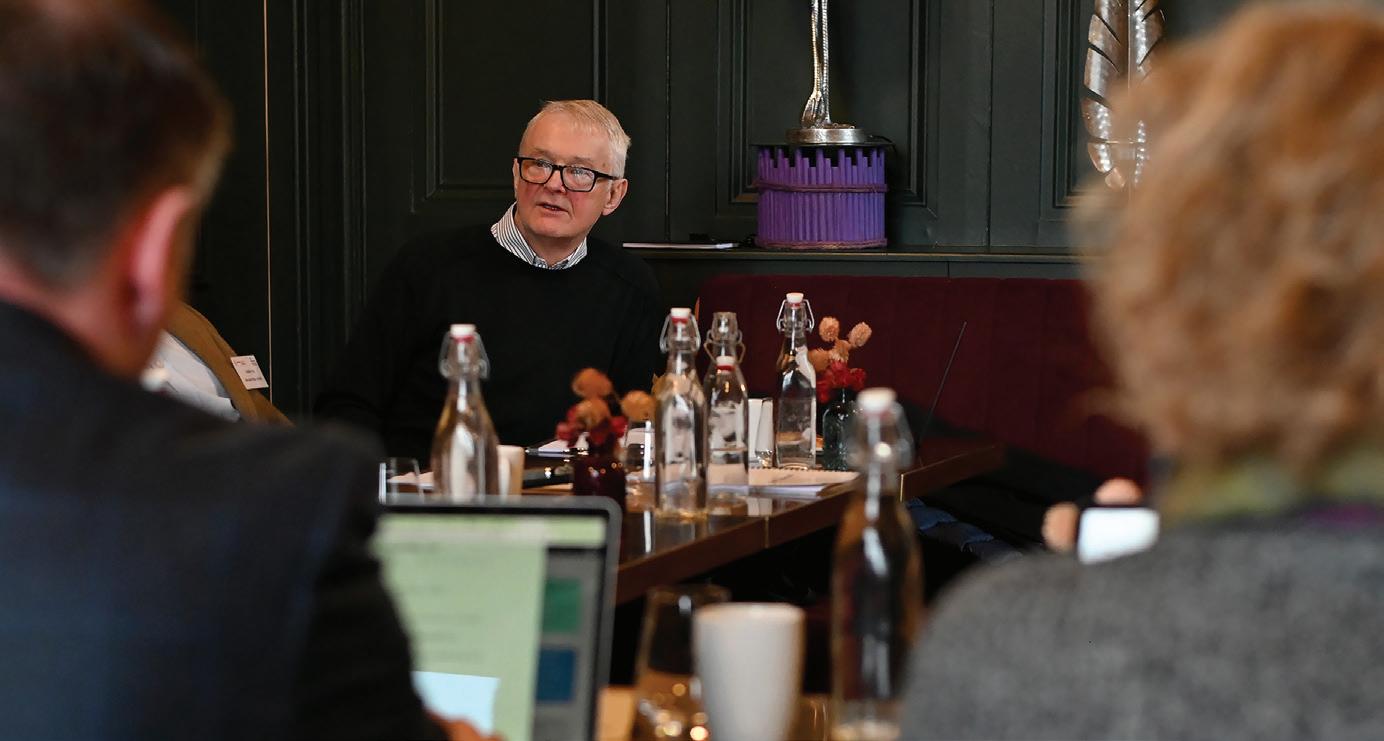

There can be a shocked reaction if a pupil decides to do an apprenticeship rather than going to university
Ian Parmenter of Parmenter Forge agreed that pupils should be encouraged to consider a trade route as a career.
He said: “I could do with more people however I can’t find blacksmiths with a good standard of skill because youngsters are coming out of education and going into the trade.
“It would be good to have tax breaks and help to take on apprentices because there are people that want to come into the industry, but they can’t access it or are not being pointed in the right direction.
“Every blacksmith I know is booked up for a year which tells me there is a need for this skill.”
The opportunities for high paid jobs in the trades sector, particularly in construction, was highlighted, however the panel felt that this route was not being pushed in the education sector.
Jonny Denton at Country Estates said: “There are massive opportunities in the trades sector around construction. People at school, are not being told about them.
“For those who are unsure of what they want to do for a career, I feel it is important for them to understand the opportunities out there. We certainly have a shortage of skilled trades people within certain
demographics and for those who can perfect their trade there are huge growth possibilities and financial reward. The one Question I would ask is, do we have the courses or people prepared to train them?”
There was a willingness in the room to actively engage with schools and colleges and bring business experience into the classroom.
Alex Tatham of Westcoast said: “I think there’s lots of opportunity to do more in schools and get businesses more involved.
“I’d like to see businesses incentivised to
go to school, using their apprentice levy, which would deliver more experience to the classroom.
“I think the Thames Valley should be a leader in that.”
Paul Britton, of the Thames Valley Chamber of Commerce, said businesses wanted to work with education institutions but needed funding to help support their activities.
He said: “Businesses are now recognising that they need to be involved in the skills conversation with schools and colleges, but they need that handrail which incentivises the time and effort spent. “
The UK attracted more than 680,000 international students to the country in 2021, with many educated in the Thames Valley’s renowned seats of learning in Oxford and Reading.
Jurek Sikorski of Henley Business School pointed to the benefits of retaining overseas students within the UK.
“We have a large proportion of international students, he said.
“Some stay here and we support them in starting and growing their business. The majority will go back to their own country, but they’ll have the skills to start growing their own business.
“I’d like the UK to provide an incentive for them to stay in the UK, start and then grow a business.”
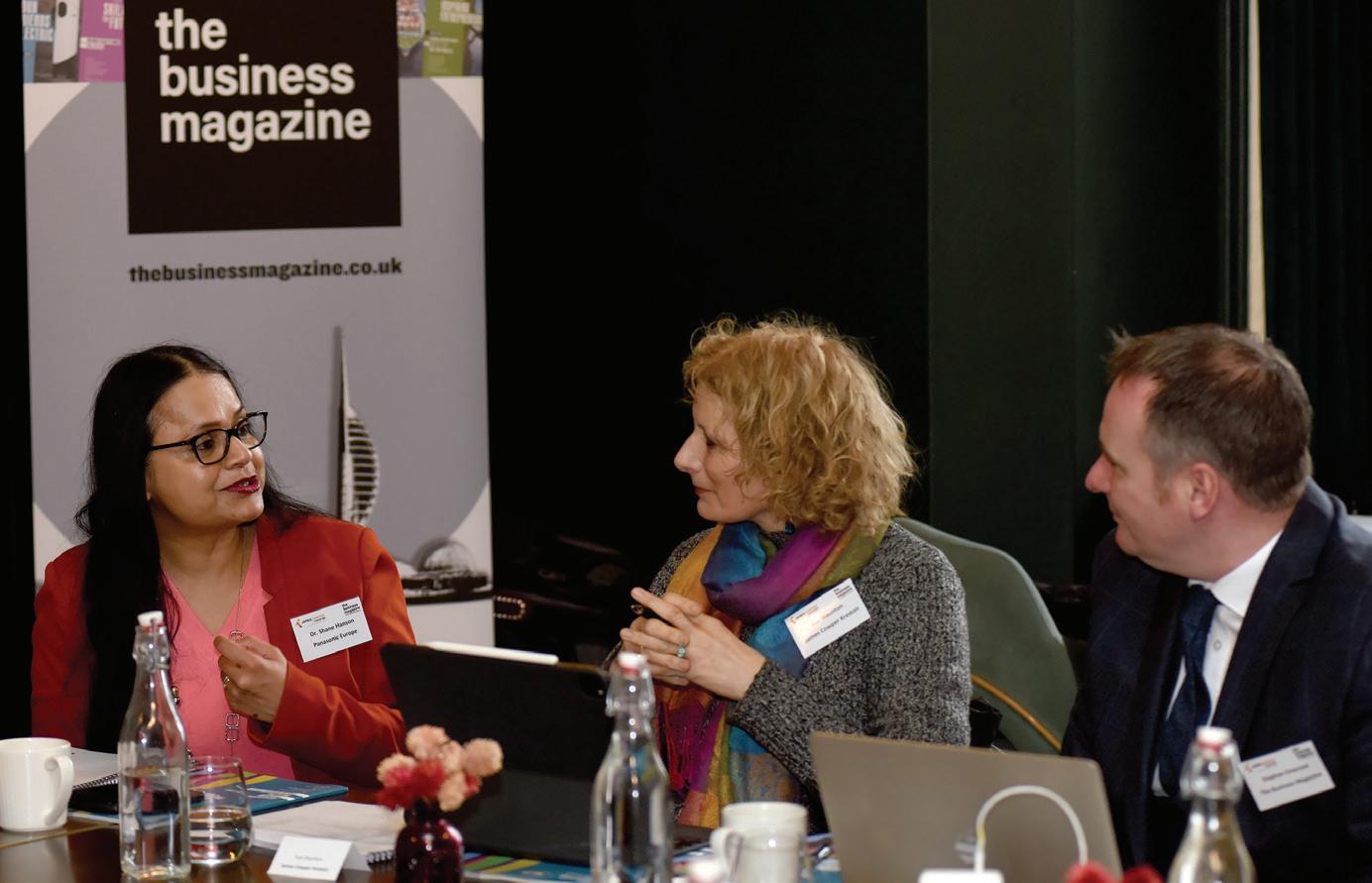

Infrastructure and connectivity a key issue
The Thames Valley has benefitted from several infrastructure projects in recent years with the Elizabeth Line, which opened in 2022, providing Berkshire’s towns with a direct connection into London.
The region has also saw the M4 Smart Motorway project completed in the same year while the Build to Rent project at Station Hill, which will create 538 homes, is nearing completion.
The value of Heathrow, not only to the Thames Valley’s economy but also to that of the wider UK was acknowledged, with the case for a rail line extension that would provide a direct link from the airport to Reading put forward.
Paul Britton, of the Thames Valley Chamber of Commerce, said: “An extension of the rail line between Heathrow and Reading would take half an hour off of that journey.
“If we are looking for a transformational project that would level up and decarbonize, then this would be it.
“This is the kind of thing that can inspire confidence in home-grown companies, or to American business.”
Connectivity was highlighted as a key issue with concerns raised over plans to close down the copper wire phone network in 2025 with all UK telephony systems becoming internet-based.

Alex Tatham of Westcoast said: “There has to be much more of a focus on connectivity, especially with the changes to landlines coming.
“I think the next government should be putting connectivity right at the top of their agenda.
“We need to create a great connected nation, particularly post pandemic, where everyone is able to work from wherever they need to.
“This is crucial to our future economic success.
“The government needs to be providing incentives to the private sector to ensure that everywhere is connected.”
Tax incentives will drive economic growth
Tax is a key lever for government when it comes to incentivising economic growth.
The narrowing of the scope of R&D tax incentives was criticised for stifling not only innovation but productivity too.
Alan Poole, Partner at James Cowper Kreston, said that there had to be a policy change in the approach to R&D tax credits that encouraged innovation.
He said: “SMEs previously had this beneficial scheme and when it was changed, SMEs lost out.
“If you do a software or construction R&D claim, it’s guaranteed to get an inquiry at the moment.
“If the aim is to encourage UK investment and to commercialise technology and science, then that it is not the approach that the Revenue is taking with these claims.”
The Enterprise Investment Scheme (EIS) aims to encourage investment in SMEs, who may be viewed as high-risk investments, by providing tax incentives to investors.
Chris Sykes, Chairman and Group CEO at Volume said the EIS scheme should be expanded to encompass larger companies.
He said: “If you’re going to survive in
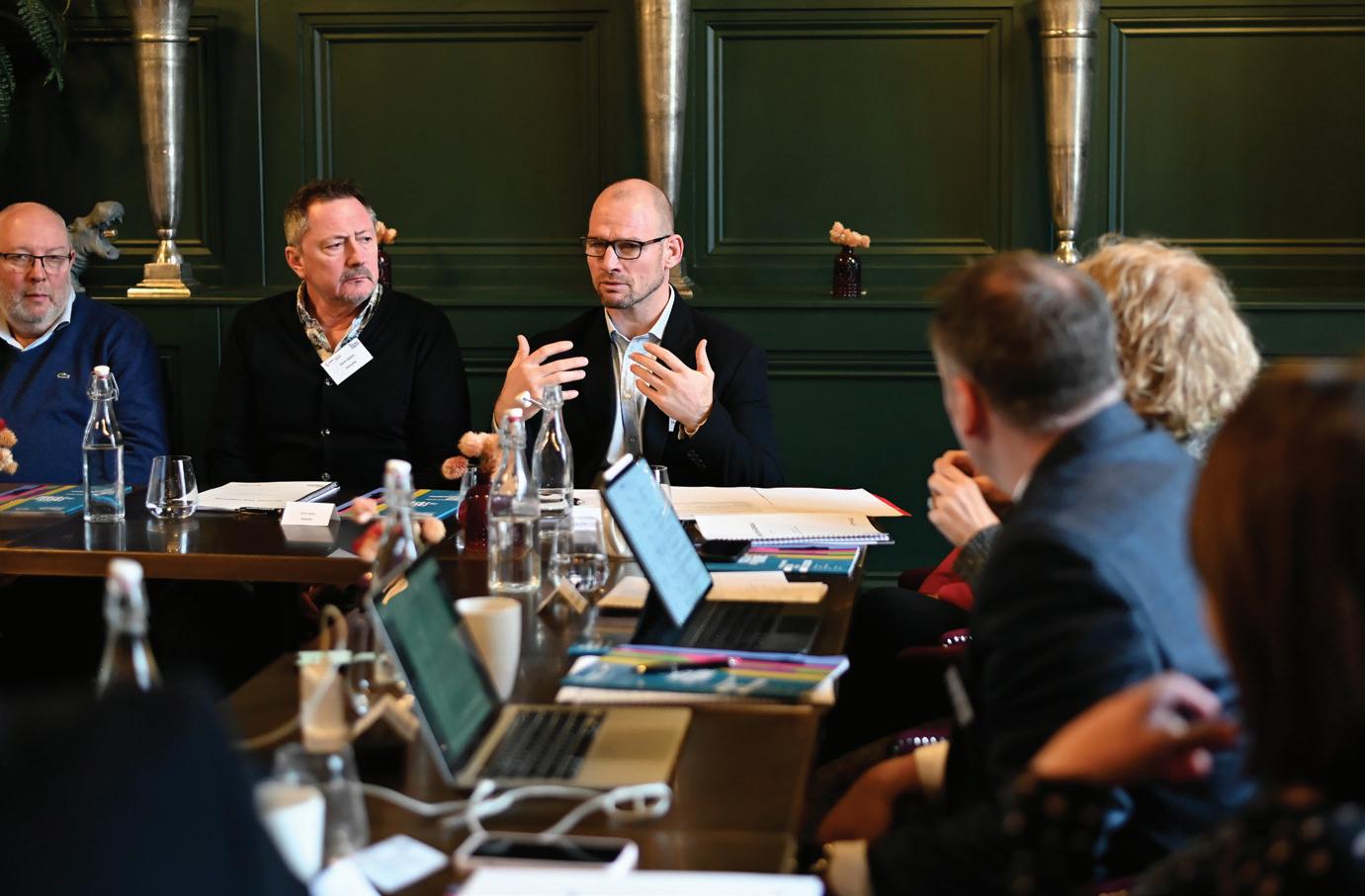
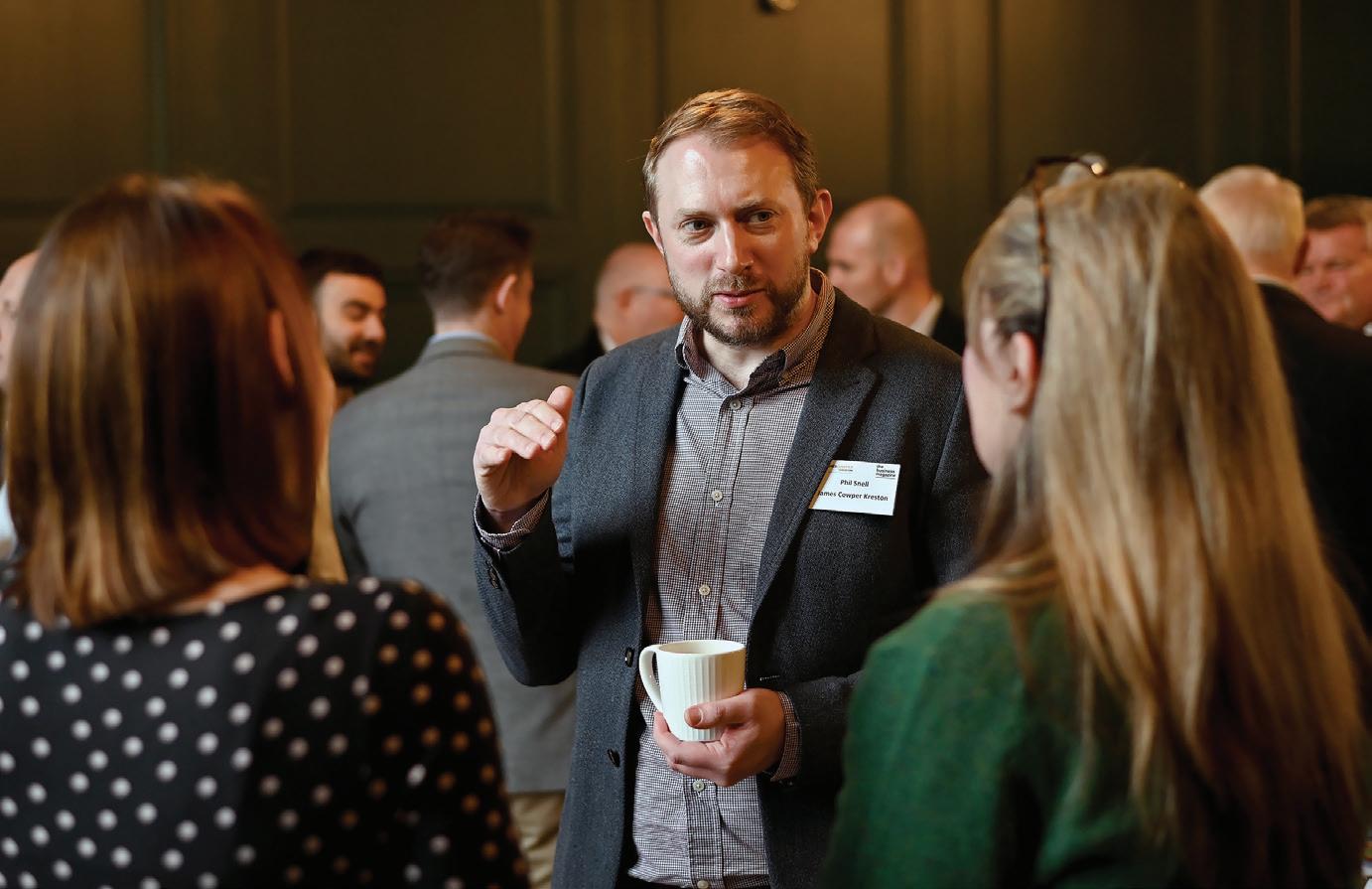
business today, you’ve got to future-proof your business because tech moves fast and this needs investment.
“The government needs to look at who qualifies for EIS as established businesses – not just young kids, are innovating with technology right now.”
Phil Snell, Business Tax Partner at James Cowper Kreston, said businesses would be hoping for further tax relief in the March Spring budget.
He said: “There were some big
announcements in the Autumn Statement with National Insurance which was a benefit to the employee.
“A lot of the announcements did something positive in one area and then ignored the people that are being affected by the fiscal drag which is bringing more and more people into paying a higher level of tax.
“For companies it was similar with being offered full expensing, for their capital expenditure however for a lot of our clients already benefitted from annual investment relief.”
Does a levelling up policy work?
The levelling up policy was criticised in the Thames Valley for failing to take into account the inter-connected nature of the country.
Paul Britton of the Thames Valley Chamber of Commerce said: “Making a binary choice between investing in Reading or Carlisle does not appreciate the whole supply chain that exists.
“When a project is won in Reading it will benefit companies around the country.”
Alex Tatham of Westcoast echoed this point and said the focus should be on connecting up the whole country economically.
“The levelling up agenda felt very politically motivated, he said.
“If you asked someone from a leveled-up authority whether they feel any better off as a result of all of this, I don’t think they would say it has had a massive impact.
“The whole country is interconnected and we should be interconnecting the whole country so it is a much better place for everyone as a result.”
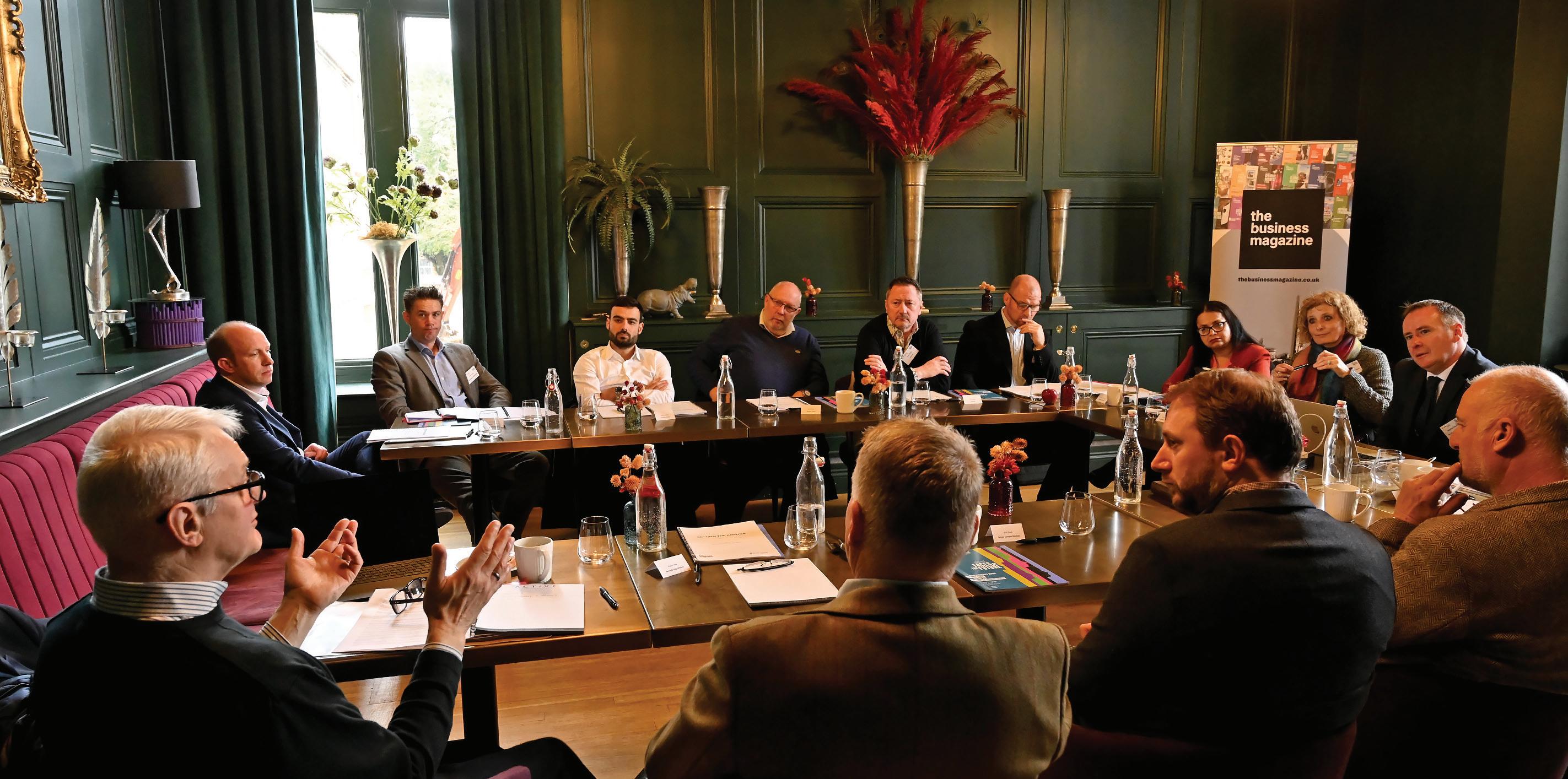
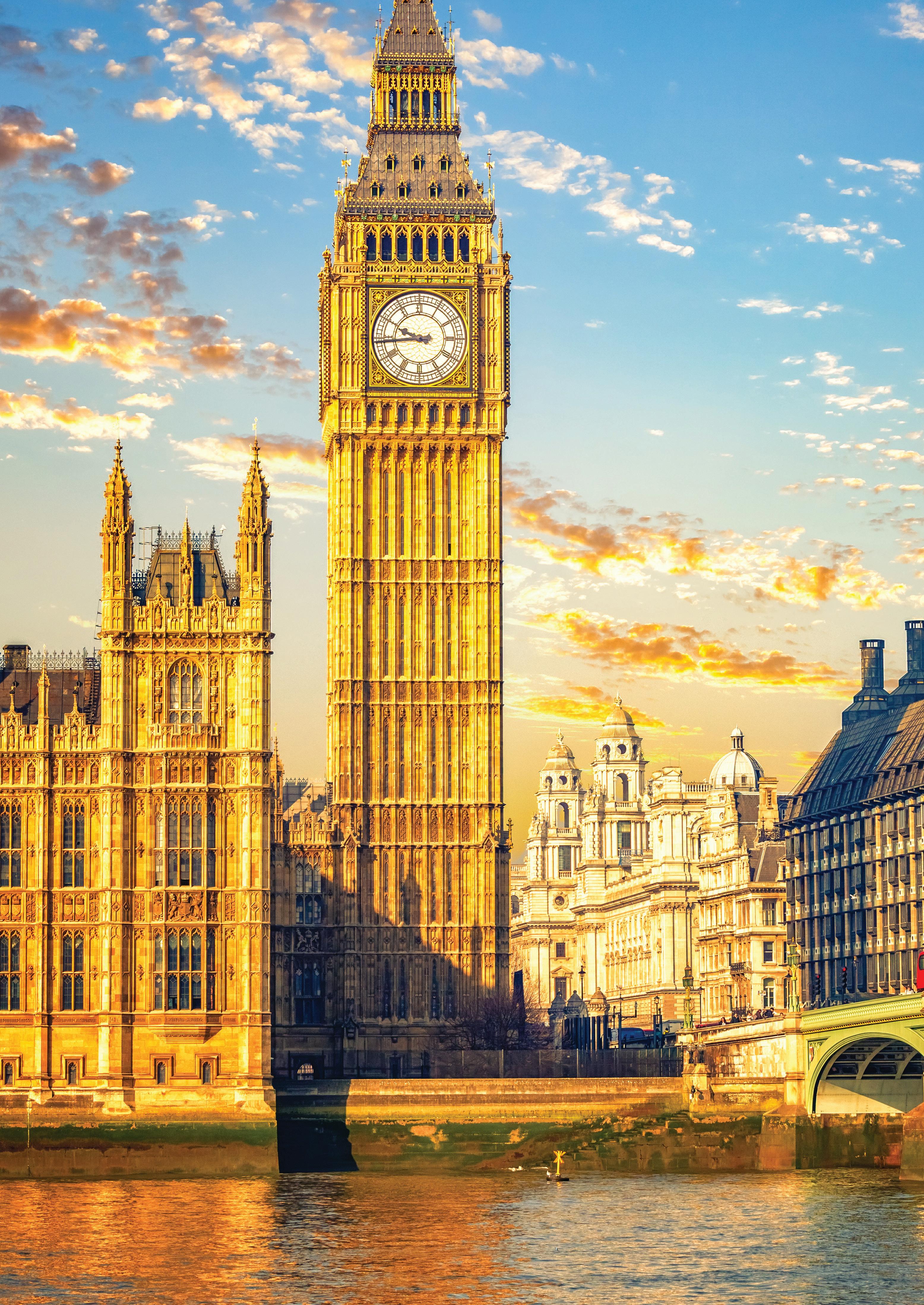
The Business Magazine reaches senior decision makers across the South East and South West in-print and online and is mustread B2B publication for company owners, directors, senior business professionals, entrepreneurs and the next generation of ambitious business people.
The publication also has a rich events programme throughout the year focused on property, technology, corporate finance and economic growth.
Our events range from gala awards to round tables.
Collaboration is very much at the heart of everything that we do and this manifesto, with its clearly defined business objectives, gives a glimpse of what is possible when businesses get together for the good of the region that they are based.
thebusinessmagazine.co.uk
The Business Magazine, Arena Business Centres, Watchmoor Park, Riverside Way, Camberley GU15 3YL

At James Cowper Kreston, we are committed to supporting the growth and success of entrepreneurial businesses across the Thames Valley and Southern region.
Recognising their unique challenges and opportunities, we offer tailored accounting, tax, and advisory services delivered by a team of experienced professionals underpinned by a deep understanding of the pivotal role these businesses play in driving innovation and economic growth.
We believe that empowering business owners to influence policy decisions that directly impact their future success is crucial for shaping the future of our region and, therefore, the greater UK economy. Through collaborative initiatives we continue to reinforce our position as a trusted partner and advocate for the business community, helping to deliver positive change and success.
jamescowperkreston.co.uk
James Cowper Kreston, 2 Communications Road, Greenham Business Park, Greenham, Newbury RG19 6AB
